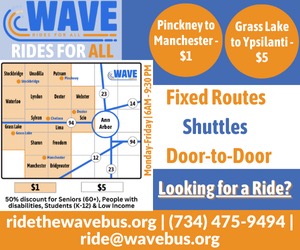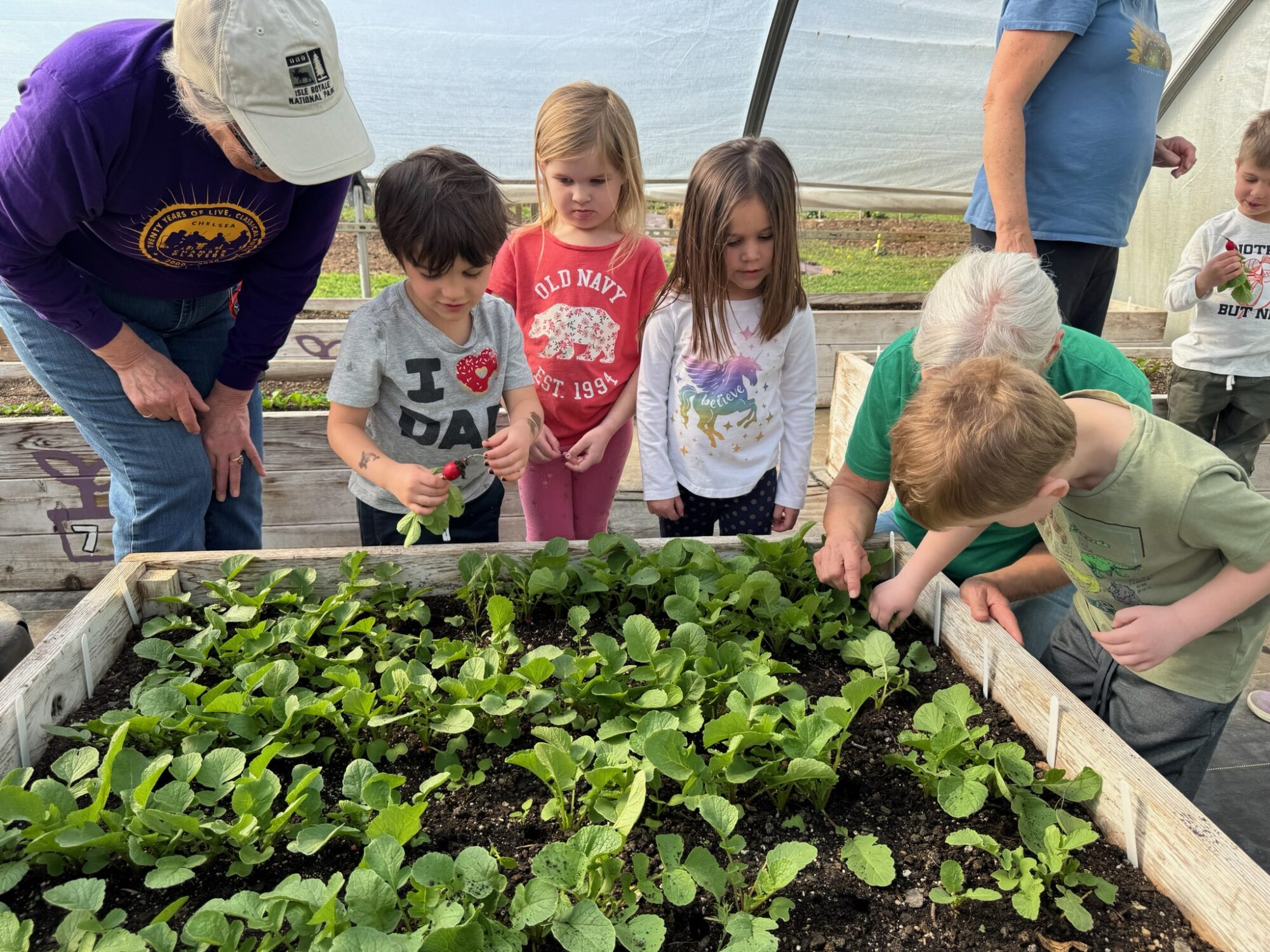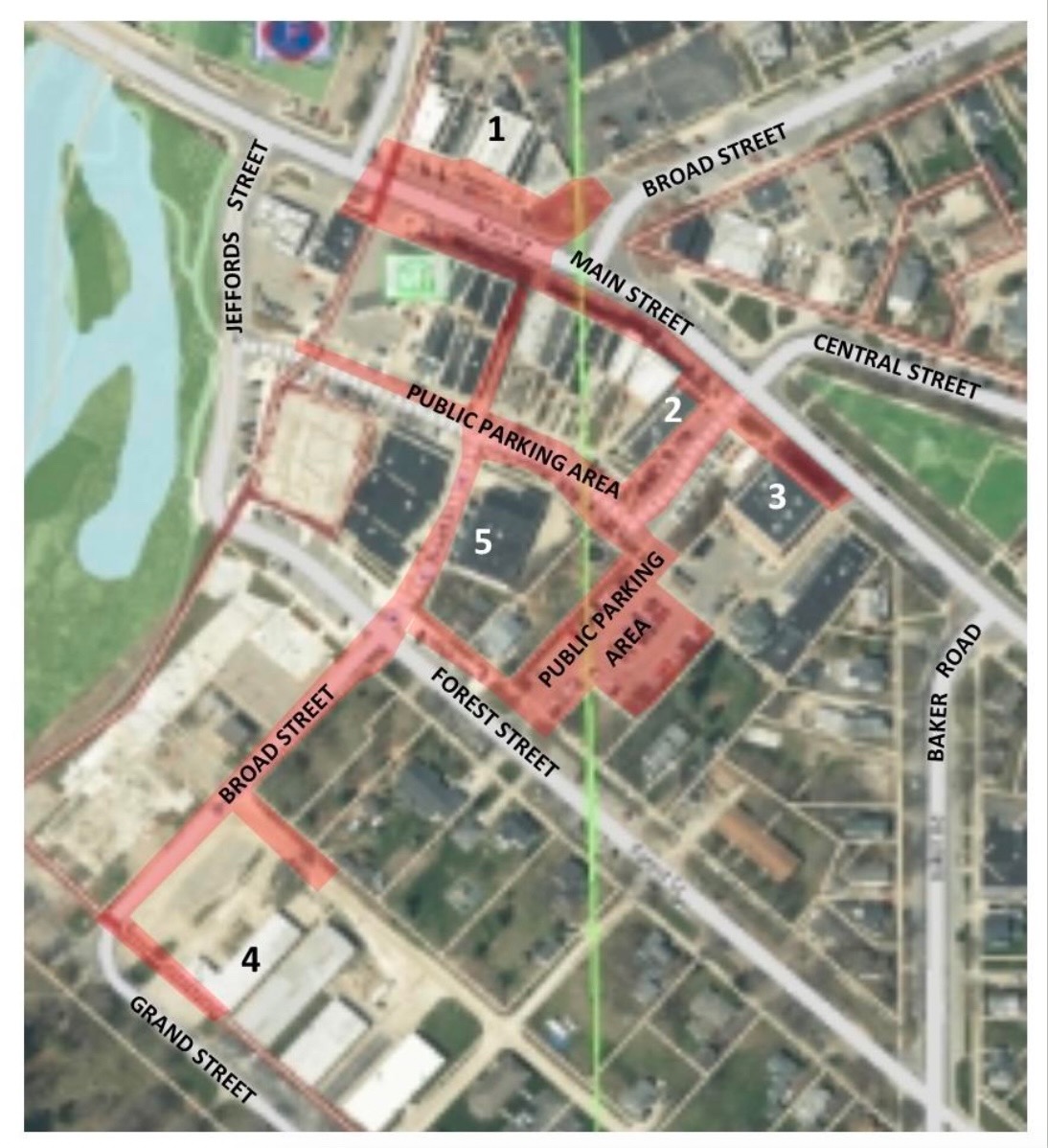Seven candidates are running for four open spots on Saline Area School’s Board of Education.
As the November election approaches, a whopping seven candidates are running to fill the four available seats on Saline’s Board of Education. To help voters understand their positions on key issues such as curriculum and budget priorities, Sun Times News sent five questions to each candidate. Below are the candidate’s responses to two of the five questions. Additional questions will be covered in next week’s issue.
Q: School safety is a significant concern nationwide with yet another school shooting in Georgia. How do you plan to strengthen or revise Saline’s safety protocols to ensure a secure learning environment for students and staff?
Jennifer Steben
It is Number One when it comes to this district. Every student and staff member has a right to feel safe mentally and physically. You cannot learn if you do not feel safe.

When my kids were at Pleasant Ridge and I was PTA President, I learned of Sandy Hook. I was gutted, angry, scared, and in disbelief. Those first graders would have graduated this year. Keeping SAS kids safe, and giving them the best education we can, is why I decided to run for the Board in the first place when my twins went into 4th grade.
When I was Board President, I got a call telling me about Oxford as I was driving to the Board meeting. Again, I was a combination of angry and protective. All of these horrible shootings, but this one was so close to home. It didn’t feel real. My good friend used to be a counselor there years ago. The connection was just different. It can happen anywhere, and I will do anything I can to be sure IF it ever happens here, we are ready. I am very familiar with our Emergency Operating Procedures and know the level of commitment our staff has to ensuring safety. I voted as a Trustee to invest in InformaCast technology for mass notifications, and be inclusive for students and staff that may have color, hearing, or visual needs.
The Georgia shooting is another reminder that a School Resource Officer can help us. I am thankful to ours, and all of our staff who love the students and will protect them.
I will not normalize school shootings. And I acknowledge the terrible reality these families affected have losing loved ones, and the trauma everyone has if they have had to go through an experience like Georgia and others.
Darcy Berwick
Gun violence is the number one cause of death for our school-aged children – more than auto accidents, drug overdoses, and cancer – and the rate of gun deaths is accelerating. Until we come together to make meaningful change, many of our preventative actions are simply a stop-gap. Specifically addressing a secure learning environment, with gun violence as a subtext, SAS should: educate, evaluate, enact.

Educate students, staff, and families on: developing socio-emotional skill sets; mental health and wellness: assessment, approaches, supports, and access; warning signs: how to recognize when someone needs help; notification/alert/reporting systems and processes (e.g. OK2SAY); safe gun storage: even the NRA recommends that we “Store guns so they are not accessible to unauthorized persons”.
Evaluate the status of: trainings, educational offerings, curriculum; external building infrastructure: external access points (doors, windows), lockdown mechanisms & procedures; internal building infrastructure: door locks, lockdown mechanisms, procedures; district and building technologies; partnerships with local municipalities; effectiveness of preventative measures
Enact: ongoing educational opportunities for students, staff, and families; ongoing trainings for students and staff; continual updates to technology; external and internal structural changes to buildings; continue to partner with local municipalities; provide access to mental health resources in school; maintain partnerships with providers for mental health resources out of school
As a result of the 2015 bond, the security of our school buildings in regards to structural layout has been upgraded, but there will always be room for improvement to infrastructure and advancements in technology. However, as physically safe as we make our schools, we’re all still just human: doors are left unlocked or propped open, one person is buzzed in and more trail in behind them, etc. It’s that human factor that’s the most difficult to address – especially as our students’ mental health continues to be of concern, bullying and harassment are serious problems, and social media’s business model of “rage and engage” has accelerated uncivil behaviors and created echo chambers. Our children deserve more from us and I will endeavor to ensure that they are safe, welcomed, and accepted at school.
Brad Gerbe
I despise that we live in a world where we continue to require these conversations. As a teacher myself, who conducts ALICE preparation drills and who engages in conversations with students on a regular basis about safety, I think we need to do better as a society! I know we do! I am going to be bold- because I think I have to for my students- we need to take a hard look at America’s gun culture as well as how we support mental health services- and make some difficult policy and law decisions to better support school safety. It is time for gun violence- in any place, but in particular at school- to stop!

As a school district, we have done what we can. We train staff and are committed to ALICE preparation for staff and students. We commit time and resources to this training. Over the past few years we have applied for and been awarded funding for the incorporation of the InformaCast system. We have moved the location of our offices and taken additional steps to ensure identification of individuals before they gain access to our school buildings. We (the Board) have made it a focus to regularly review our district’s safety plan.
One of the ways I plan to continue to make this a focus is by being intentional with our elected leaders. On October 14th I plan to participate in a MASB (Michigan Association of School Boards) legislative priorities session offered through the Washtenaw and Livingston Intermediate School Districts. My focus is going to be on two things- school funding and school safety. I plan to ask our elected officials to 100% prioritize additional mechanisms for funding. This past week I wrote our Superintendent and our Technology Director and I was assured that we are keeping at the top of our minds safety mechanisms for staff and students. For example, the quick alert system that saved lives in Georgia. This is possible for Saline- but it requires Bluetooth and bandwidth. As we go through the bond update process to buildings I am going to continue to advocate for these enhancements and I am going to continuously ask for these innovative solutions to be a reality in our classrooms. That said, it requires money. And that is what I’m going to ask our legislature for. In addition, I am going to ask for and demand the prioritization of sensible solutions with guns- red flag laws, gun storage, and secure school entrances. I know these can be hot-button topics. But I think whether red or blue, I believe we ALL want our children and the staff that supports them to be 100% safe. This unites us- not divides us! We have to do something real and tangible! As a teacher who experiences these anxieties in the classroom- I think I can be a strong advocate.
Jason Tizedes

School safety is a top priority of mine. Being in the criminal justice and public safety sector has given me a great deal of experience when it comes to community safety. School shootings are only one small—though extremely publicized—aspect of school safety. School safety starts with the students’ home lives, extends to the school grounds, and continues through each aspect of the students’ time in school.
Common sense prevention strategies like more awareness of physical or emotional bullying, social media or cyberbullying, and mental health statuses of our most vulnerable students is just one place to start. Finding easy, accessible solutions to mitigate active situation circumstances are possible through ingenuity and creativeness. Our staff should be trained and should feel comfortable executing safety protocols, and if they are not, then we need to make them feel safe in telling us so that we can find alternate, viable solutions. School safety is more than preventing or responding to a critical, violent situation. It is having multiple staff trained on advanced first aid, it’s having accessible tools to aid in an emergency, and it’s knowing which students are most vulnerable.

Kelly Van Singel
Because of the partnership we have with local law enforcement via our resource officers, student safety is at the forefront of daily work in the district. With continued emphasis on safety awareness and response training, along with reporting systems such as OK2SAY, we can work as diligently as possible for safety and security in our learning communities.
Shari Barnett
I feel having adequate training to identify mental health concerns and having processes in place for time-sensitive referrals is one of the most important things we can do aside from ensuring mechanical security measures. Providing mechanical security measures and ensuring they are used consistently and properly is our first line of defense when

safety issues arise but working on strategies to identify known behavioral factors and warning signs of potential security threats to the school community is urgently needed. I would like to see policy revised to address some of these issues of identifying potential threats and create processes to ensure that students and staff receive adequate support, resources, and follow-up to ensure the safety of students and staff is primary.
Susan Estep
In April 2007, I was a part of the Virginia Tech community, when 32 beautiful souls lost their lives to gun violence. I was lucky enough to be off campus that day. I’m committed to working towards putting an end to gun violence in schools and communities. I will continue to advocate for the safety of all of our students and staff. As Board Trustee, I co-authored the

Resolution on Gun Safety and Safe Gun Storage. It passed 6-1. This is an important commitment for our district to educate families in our community about preventing gun violence. We must advocate for state and federal funds to invest in programs and resources that support the mental health, safety, and security of our students and staff. I encourage everyone to reach out to your lawmakers to advocate for this and about other topics you care about.
Q. With ongoing debates over censorship and curriculum content, including race, gender, and history education, how will you ensure that Saline’s curriculum is inclusive and representative of all students’ backgrounds?
Jennifer Steben
Thank you for this question, because it is the first one I have received this campaign cycle on censorship. I have a degree co-concentrating in journalism, and greatly value the freedom of the press and expression. I also co-concentrated in history (Modern European focus), and know how valuable it is to deeply understand our global history in order to navigate modern issues.
I value critical thinking and inclusion. I support our subject matter experts in the classroom, and I do not censor. I am thankful to our SAS community that there has not been a vote that has come to the Board table on book banning.
Darcy Berwick
I believe that censoring, banning, sanitizing, stifling, or any other form of suppressive action taken by an American governmental body should be carefully scrutinized – including public education institutions.
Our school districts must foster the right conditions for our educators and learners to be able to 1. learn content, and 2. engage in discourse that allows for, and even encourages, free speech, critical thinking, and more. Those conditions should evolve as our students move forward through their grade levels in order to meet their increasing knowledge base, developmental stages, and learning capabilities. This work is challenging and there is, no doubt, an art to it. But, when teachers create supportive environments with collaborative opportunities that are conducive to learning, they are teaching students how to learn and how to think.
The Board’s role in this is to prioritize that safe and inclusive environment which is respectful of, and productive for, our diverse population of students. As a Trustee, my role would be to 1. provide our district with an effective Superintendent who prioritizes all of our students’ educational experiences and achievements, and 2. secure policies that enable the district to achieve its educational directive. I believe that our current Superintendent, Dr. Laatsch (previously the Asst. Superintendent for Curriculum and Assessment), and the Teaching & Learning Team are evaluating curriculum across grade levels to ensure that it is relevant, reflective of diverse life experiences, and in alignment with our commitment to preparing students for their future in an increasingly complex society.
Brad Gerbe
These are delicate conversations. Schools and families are partners. It is important that the curriculum of our schools reflects the diverse experiences of Saline students- this includes race, gender, religion, historical perspective, and many other family experiences. I trust our professionals! Saline’s education professionals are amongst, if not THE best, in the State and certainly in Washtenaw County. Jessica and I send our kids (Graham, 16 and Bryce, 13) to Saline because of the excellence of our educational professionals and the resources that are available to them. With 100% confidence, I entrust the staff of Saline with the education, the safety, the health and wellness, and the co-curricular (sports, clubs, etc.) support that makes Saline great.
Because I so strongly support our education professionals, I do NOT support censorship of content. I trust that Saline’s leaders and staff will engage in the selection of curriculum that is inclusive and makes all students feel supported for who they are! I want our staff to be brave and to advocate for and select curriculum that validates the valuable diversity of our students.
Now, that said, because I also believe in school-parent partnership I also support our opt-out policy. While Jess and I will rarely if ever be utilizing this opt-out policy, there are situations that are sensitive and important to our families- and I respect the ability of our families to make decisions that support the needs of our students. For example, if a student has experienced a recent loss of a loved one, the opt-out could provide an opportunity for the student and his/ her/their teacher to engage in conversations about a curricular topic that is about the death of a character, etc. and to choose the best supports for this student family. I value these conversations because I think building positive relationships and connections is the most important thing that we can do to support our students as they live their best authentic lives.
Jason Tizedes
Objective curriculum should be the only focus of our district. If history is not learned, we are doomed to repeat it. That does not mean taking a subjective approach to teaching anything from history to math. There is nothing wrong with including lessons on pivotal figures in history that broke barriers, but they should be celebrated for what they were at the time. Something as basic as simple US government or civics classes could go a long way to improving the societal communication that is sometimes based on subjective instruction. Learning that our constitution is what gives each of us the right to disagree with any one, or any thing should be celebrated instead of denigrated. The philosophy of picking and choosing what is right or wrong about our history should never be the intention of the lessons. The lessons should be thought-provoking. The students should be empowered to explore more about a particular topic. But we cannot waive a magic wand and make history more inclusive, or mathematics gender neutral. As long as we teach our kids objectively, and allow them to learn how to be curious, I promise you, they will find their way to knowledge.
Kelly Van Singel
Fostering a sense of inclusion and belonging is very important, not only in a school community itself, but also in concepts of study and learning. It is in the collaborative layering of committee work, school community involvement, staff expertise, and student motivation that inclusive and representational learning can thrive. Maya Angelou once said, “Do the best you can until you know better. Then when you know better, do better.”
Shari Barnett
I believe that the public schools are the “market place of ideas” and crucial to the sustainability of our democracy. That said, I am very concerned that there has been a shift to quiet the voice and opinion of students and staff who may have different ideas than the perceived majority. No group, based on race, gender, or religious affiliation should be made to feel that their opinion is unwelcome. I feel strongly, for the sake of the students who are on their journey through K12 Education, that it is our responsibility to ensure that we are building bridges with one another and will commit to civilly sharing ideas, even with those that we disagree. Saline Area Schools are truly one of the best in the State of Michigan but we need to keep working hard to ensure that we remain in that position. Being inclusive and representative of all students’ backgrounds is ideal and we should strive for that, regardless of gender, race, religious views or political affiliation, etc.
Susan Estep
Our students, staff, and families deserve to feel welcome, safe, supported, and represented in the Saline Area Schools District. The students need to see themselves in the curriculum, and it’s essential that their peers see them too.
During my time as Policy Chair, I introduced and drafted two very significant policies; the Transgender and Nonbinary Students Policy, and the Diversity, Equity, and Inclusion Advisory Committee Policy.
The Board’s Diversity, Equity, and Inclusion Advisory Committee has been essential for progress being made in the district. They advocated for a Director of DEI, with the current role focused on supporting educators in being Culturally Responsive in their classrooms and beyond. I truly value the committee’s recommendations to the Board, and to the DEI plan first drafted in 2020 and updated in 2023.
I’m committed to fighting for Public Education. I’m strongly against the censorship of books and curricula, especially the attempts to erase the experiences of people of color and the LGBTQ+ community. I will always use my voice to advocate for those who are underrepresented and who have been marginalized in our district for far too long.





 8123 Main St Suite 200 Dexter, MI 48130
8123 Main St Suite 200 Dexter, MI 48130


